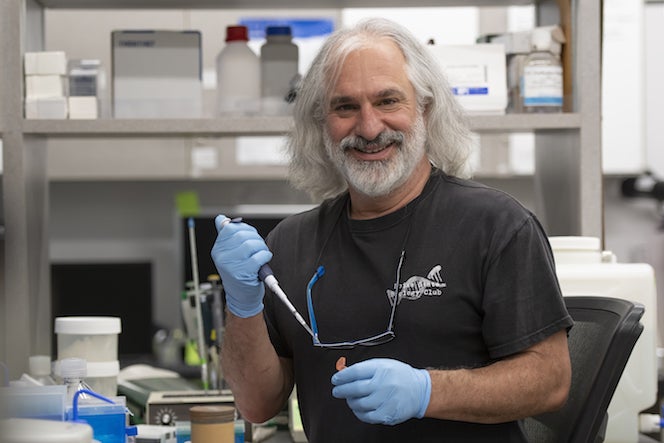
The laboratory headed by professor Greg Hampikian, executive director of the Idaho Innocence Project at Boise State, continues to rack up victories.
The most recent is helping to free Johnnie Lee Gates, a Georgia man wrongly convicted of rape, armed robbery and murder in 1977.
The Boise State lab has worked on this case since 2016, said Hampikian. The lab performed initial DNA analysis, submitted affidavits, and, with the help of a $650,000 grant from the U.S. Department of Justice, funded the final probabilistic genotyping by Mark Perlin of the company Cybergenetics using TrueAllele software.
Hampikian explained probabilistic genotyping as “a statistics application that uses high performance computing to consider tens of thousands of possible interpretations for complex mixtures of DNA, and provide the most likely contributors.”
The method, he added, is more effective than manual interpretation and is now used by crime labs all over the world.
Hampikian spoke more about the Gates case, where he had been scheduled to testify.
“Janet Layne of the Idaho Innocence Project and I were at the hearing that resulted in the order for a new trial and she really connected with Gates. I was listed to testify, but in the end Mark Perlin testified so thoroughly that I really didn’t need to. The judge was convinced by the DNA analysis, and all other claims seemed to have had technical problems. It’s really a triumph for probabilistic genotyping and TrueAllele. The lawyers and interns from the Georgia Innocence Project who found the evidence, and the lawyers from The Southern Center were amazing.”
To date, Hampikian and his collaborators have freed seven wrongfully convicted people with support from the Department of Justice grant.
Read more about Johnny Lee Gates and his wrongful conviction: https://www.ajc.com/news/local/georgia-inmate-freed-after-years-for-crime-denies-committing/HbDs7WRjonj4I4AekOorhL/